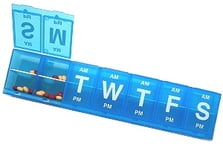Many seniors living in Cincinnati today have chronic heart disease. Indeed, much of the surrounding Tristate region — especially to the south and east, toward Appalachia — are part of a “heart disease belt” in the United States, according to findings by the Centers for Disease Control and Prevention (CDC).
Heart disease is the leading cause of mortality in the City of Cincinnati, according to the city’s health department. Cardiovascular conditions, including heart attacks, congestive heart failure and strokes resulting in the deaths of approximately 760 Cincinnatians per year.
How can Cincinnati and Tristate seniors live heart healthier? Let’s look at a few steps you can take to protect your body’s most important muscle:
1. Exercise more.
Heart-beneficial exercise doesn’t require a pricey gym membership. It doesn’t even require a lot of weightlifting, although light circuit training is one of the most highly effective ways to control weight and improve cardiovascular fitness.
Get outdoors and walk in your neighborhood. Park further away from the door when you go to the grocery or mall; the walk in is good for you. Buy an inexpensive pedometer and set a steps-per-day goal for yourself. The more you get up and get moving, the better you’re doing by your heart.
2. See your primary care doctor regularly.
Regular checkups with your doctor may be your best early warning system for a developing heart problem — and your most cost-effective means of combatting it. If you wait until you’re symptomatic, most times irreversible damage has already been done to your heart and arteries, and you can only manage the symptoms from then on.
By visiting your primary care doctor for regular wellness checkups, you might find out about a problem early. That could buy you the time to make positive lifestyle changes that would help you avoid expensive hospital stays — or worse — later.
 3. Monitor your blood pressure.
3. Monitor your blood pressure.
High or low pressure is often the first detectable sign of heart disease. If you monitor your blood pressure closely, you might be able to see your doctor, develop a treatment plan and head off a major issue before it crops up.
Medicare usually covers home blood pressure monitors at 100 percent, when prescribed by your family doctor. Or, use the free blood pressure screening machine at your local grocery or pharmacy.
4. Stick to a low-fat, low-calorie diet.
In the summer, visit farmers’ markets and take advantage of the availability of cheaper, local produce. Avoid high-fat, high-sugar, processed and fast foods whenever possible. And, when you do indulge, substitute healthier preparations of your favorite comfort foods.
Instead of a big burger, eat a lean steak. Instead of creamy whipped potatoes with butter, substitute roasted red potatoes with a little olive oil and rosemary. Avoid broccoli casserole — try some steamed broccoli dusted with fresh-cracked black peppercorns and a touch of garlic salt.
Check out heart health-focused cookbooks from your local library and try the recipes you find there. Or, try these heart-healthy recipes from the American Heart Association.
5. If you’re on medications to manage your chronic heart disease, be careful not to miss doses.
Skipping doses of your blood pressure medications, statins, anticoagulants or prescribed daily aspirin is a quick way to end up in the hospital with a serious problem.
 If your co-pays are a significant financial burden, know that many drug companies offer financial assistance to seniors who have trouble affording their medications. They’re easy to apply for and could help you to manage the cost. Public health departments and senior action organizations often have drug discount programs of their own.
If your co-pays are a significant financial burden, know that many drug companies offer financial assistance to seniors who have trouble affording their medications. They’re easy to apply for and could help you to manage the cost. Public health departments and senior action organizations often have drug discount programs of their own.
If you need medications to manage your heart condition, don’t hesitate to reach out to your local senior agency, your pharmacist, your doctor’s office, or your hospital system’s social workers or financial counselors for help.
6. Stop using tobacco.
Smoking and chewing tobacco have both been shown to have a strong link to heart disease. Talk to your doctor about cessation aids and develop a plan to help you quit.
Take steps now to prevent heart disease, and take care to actively manage your condition.
If you’re a senior living in Cincinnati who’s either at significant risk of developing heart disease due to family history or lifestyle factors or who already has a heart disease diagnosis, take the steps above to live a heart-healthier life!













